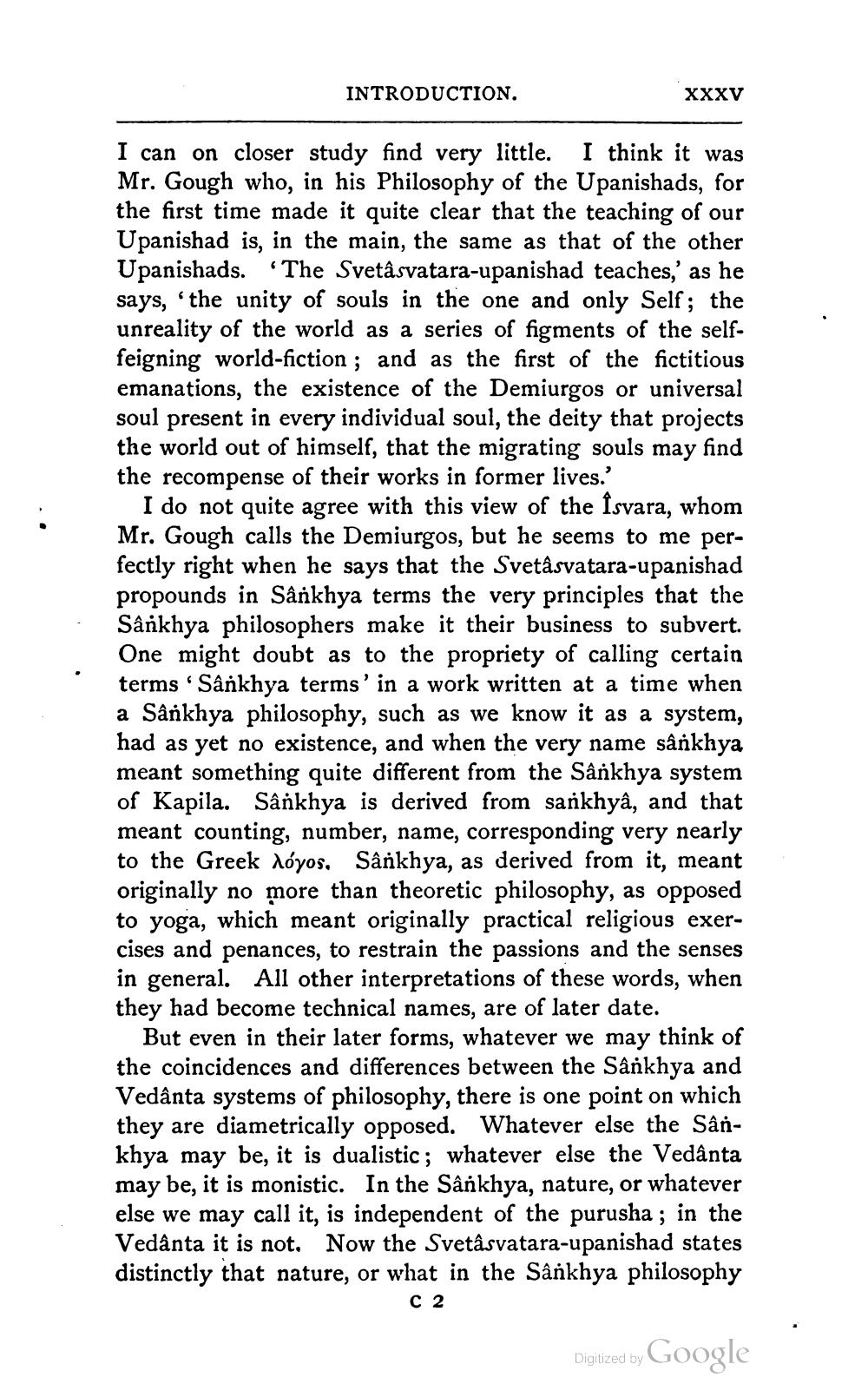________________
INTRODUCTION.
XXXV
I can on closer study find very little. I think it was Mr. Gough who, in his Philosophy of the Upanishads, for the first time made it quite clear that the teaching of our Upanishad is, in the main, the same as that of the other Upanishads. "The Svetâsvatara-upanishad teaches,' as he says, "the unity of souls in the one and only Self; the unreality of the world as a series of figments of the selffeigning world-fiction ; and as the first of the fictitious emanations, the existence of the Demiurgos or universal soul present in every individual soul, the deity that projects the world out of himself, that the migrating souls may find the recompense of their works in former lives.'
I do not quite agree with this view of the Isvara, whom Mr. Gough calls the Demiurgos, but he seems to me perfectly right when he says that the Svetâsvatara-upanishad propounds in Sânkhya terms the very principles that the Sânkhya philosophers make it their business to subvert. One might doubt as to the propriety of calling certain terms 'Sânkhya terms' in a work written at a time when a Sânkhya philosophy, such as we know it as a system, had as yet no existence, and when the very name sânkhya meant something quite different from the Sânkhya system of Kapila. Sânkhya is derived from sankhyâ, and that meant counting, number, name, corresponding very nearly to the Greek lóyos. Sânkhya, as derived from it, meant originally no more than theoretic philosophy, as opposed to yoga, which meant originally practical religious exercises and penances, to restrain the passions and the senses in general. All other interpretations of these words, when they had become technical names, are of later date.
But even in their later forms, whatever we may think of the coincidences and differences between the Sânkhya and Vedânta systems of philosophy, there is one point on which they are diametrically opposed. Whatever else the Sânkhya may be, it is dualistic; whatever else the Vedanta may be, it is monistic. In the Sânkhya, nature, or whatever else we may call it, is independent of the purusha; in the Vedânta it is not. Now the Svetâsvatara-upanishad states distinctly that nature, or what in the Sânkhya philosophy
C 2
Digitized by Google




